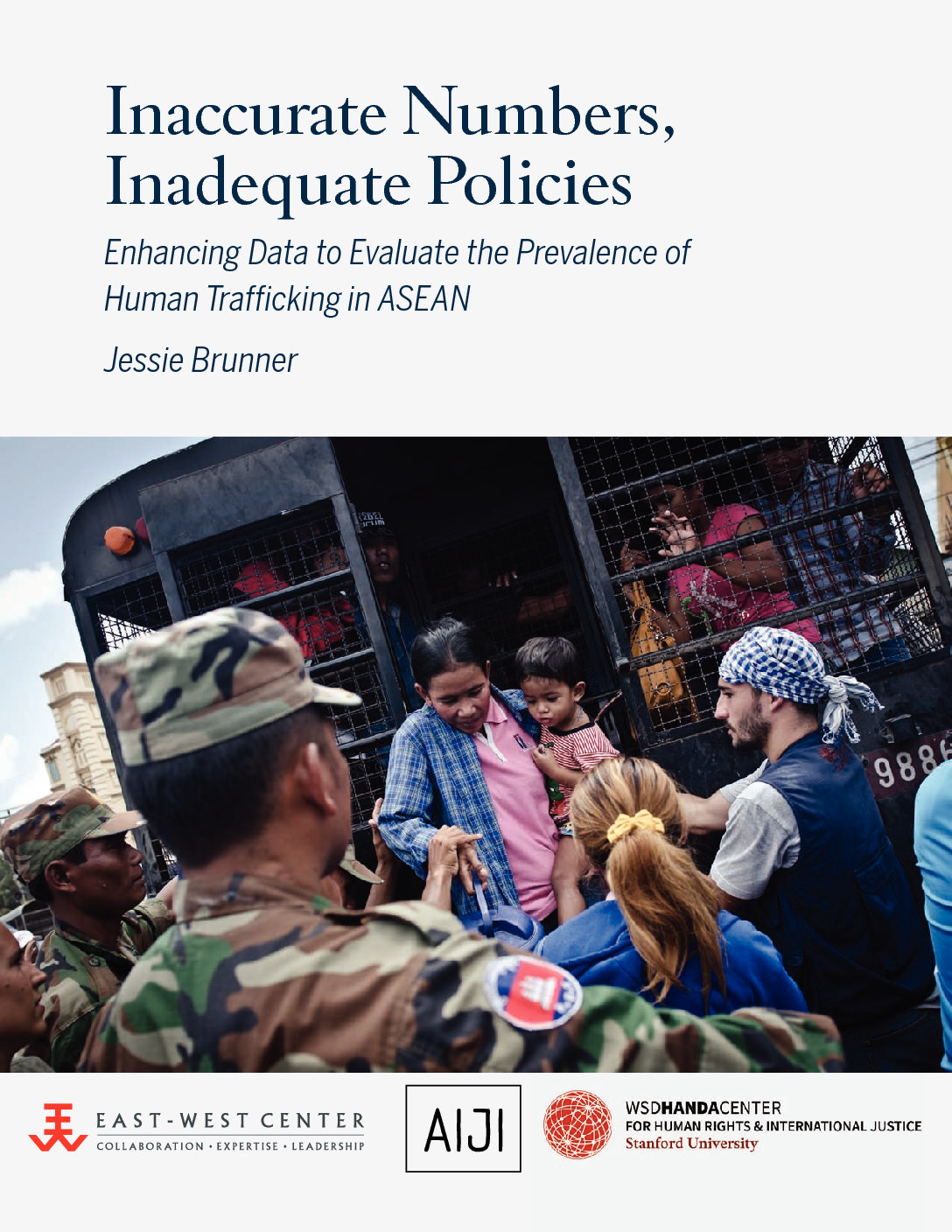
Inaccurate Numbers, Inadequate Policies: Enhancing Data to Evaluate the Prevalence of Human Trafficking in ASEAN
There is a lack of robust, accurate and standardized data related to human trafficking in Southeast Asia, information that is critical to informing better policy. Policies and programs based on poor data will likewise be poor in efficacy. Current quantitative data has led to largely speculative estimates of the extent of trafficking, and are often based on biased sampling methods and are highly susceptible to politicization. This reports highlights the benefits of local prevalence studies based on the unique circumstances of a given trafficking context, which reveal local trafficking patterns and thus allows for better-informed, more targeted interventions. The report explores methods for estimating hidden populations such as trafficking victims (sampling methods), current global prevalence estimates, examples of localized prevalence studies in Southeast Asia and offers detailed recommendations for ASEAN, governments of ASEAN states and the international anti-trafficking community.
